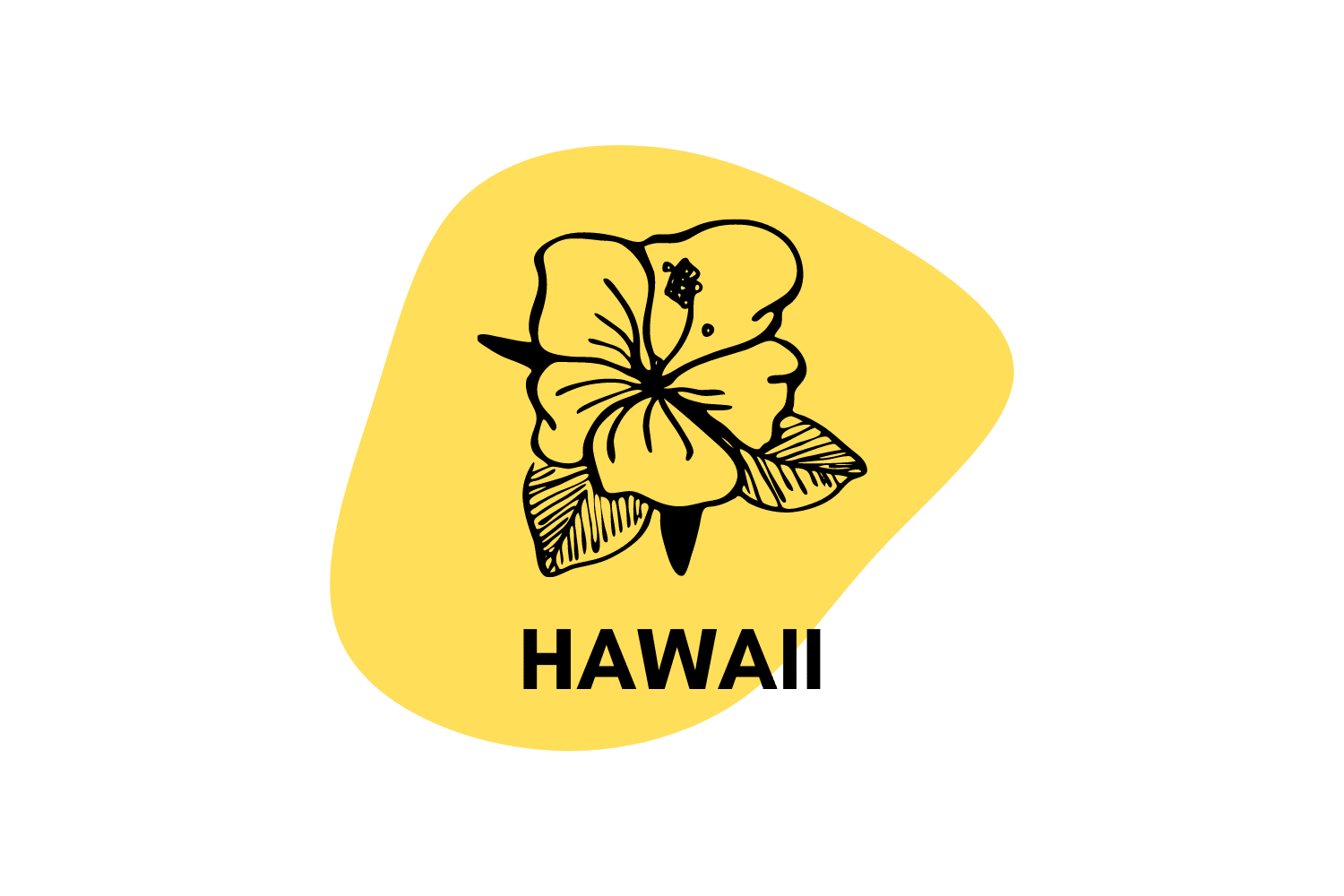Kapu! Psychedelics Are Still Banned in Hawaii in 2023 — But Things Are Starting To Change
The Hawaii senate recently approved a psilocybin task force to clear a path for legal psychedelic therapy in the coming years.

In this article, you will find everything you need to know about psychedelics in the state of Hawaii.
We’ll cover laws regulating magic mushrooms, MDMA, Ketamine, LSD, and more.
In addition, you’ll learn about the medicinal uses of psilocybin, one of the most-used psychedelics of all time.
Are Magic Mushrooms Legal in Hawaii?
No. Under state and federal law, possession, cultivation, and sale of magic mushrooms are illegal in Hawaii.
Psilocybin, the principal psychoactive ingredient in magic mushrooms, is classified as a Schedule I drug in the United States.
By default, the penalties for breaking these laws are considered a felony, leading to 1 to 25 years in prison.
There have been attempts to legalize psilocybin for therapeutic use through SB738, but the measure is still under negotiation. In addition, movements are calling for the legal reclassification of psilocybin because of its high value as a research substance and the low addictive power of the drug.
Another measure, SB 3160 SD2, was recently passed in Hawaii that approved the creation of a special investigation unit. The goal of this task force is to establish a long-term strategic plan for implementing psychedelic medicines. The language in this bill acknowledges poor accessibility of adequate mental healthcare within the state.
Selling psilocybin-containing mushroom spores is legal in Hawaii. However, it’s illegal to cultivate magic mushrooms. As soon as the spores are germinated, you’re breaking Hawaiian state law.
Map of Magic Mushroom Laws in the US
Do Magic Mushrooms Grow Wild in Hawaii?
Yes. Due to the ideal climate for magic mushrooms, such as high humidity and relatively warm temperatures, mushrooms grow very easily in Hawaii.
In addition to this, we should note that Hawaii is home to a large variety of psilocybin mushroom species.
Magic mushroom species that are commonly found in Hawaii include:
- Panaeolus bisporus
- Panaeolus cambodginiensis
- Panaeolus cinctulus
- Panaeolus cyanescens
- Panaeolus tropicalis
- Psilocybe cubensis
What Are the Medicinal Uses of Shrooms?
Psilocybin has many medical uses backed by evidence.
For example, many studies prove the efficacy of magic mushrooms as a potential treatment for depression, post-traumatic stress disorder (PTSD), addiction, existential anxiety, and cluster headaches.
Other studies suggest magic mushrooms and other psychedelics may facilitate problem-solving and creativity.
Is LSD Legal in Hawaii?
No, LSD is illegal in Hawaii.
LSD (lysergic acid diethylamide) is a semisynthetic psychedelic drug classified as a Schedule I restricted substance as per SB 2793.
The state of Hawaii prohibits the possession, sale, and production of LSD for any reason.
Is MDMA Legal in Hawaii?
No.
MDMA, also called ecstasy, is a synthetic hallucinogenic drug considered a Schedule I substance. Its use, sale, and production are punishable by various fines or jail sentences as per SB 2793.
Punishment depends on the amount one was caught in possession with, intent to sell, and past criminal history.
Different states and countries have legalized this drug’s usage in various medical treatments for some years now. MDMA is soon to be legalized across the country for use in psychedelic-assisted psychotherapy.
Is Ketamine Legal in Hawaii?
Yes, ketamine is legal for medical use only in the state of Hawaii.
Ketamine is a sedative drug with significant analgesic and anesthetic power. More recently, ketamine has been introduced as a treatment option for treatment-resistant depression and PTSD in a medical setting.
While therapies with ketamine are legal in Hawaii (as in many other states) to treat depression and PTSD, recreational use of this drug remains highly illegal and severely punishable by law.
What’s The Difference Between Legalization & Decriminalization?
Legalization or decriminalization — is there a difference? Of course, there is.
Legalization makes a previously-illegal substance entirely legal for consumption, production, and regulated sale.
On the other hand, decriminalization of a drug makes the consequences of its use, production, and sale much lower in terms of criminal degree, fines and time served.
For example, weed is still illegal in Hawaii, but it’s decriminalized.
Psychedelics are more likely to become decriminalized in Hawaii than legalized — except for some compounds, such as MDMA and psilocybin, which are already on the path to legalization in a clinical setting.
Key Takeaways: What’s The Future of Psychedelics in Hawaii?
Although there are more forward-thinking states when it comes to discussing legalization, Hawaii remains a bit of a wild card in terms of psychedelic legalization or decriminalization.
While this island state has taken some interesting moves to clear a path for legal psychedelics, they’ve also shown a lot of reserves regarding drug policy change over the past decade.
It’s impossible to predict the immediate future accurately, but we think that Hawaii won’t take too long to reconsider its drug laws.